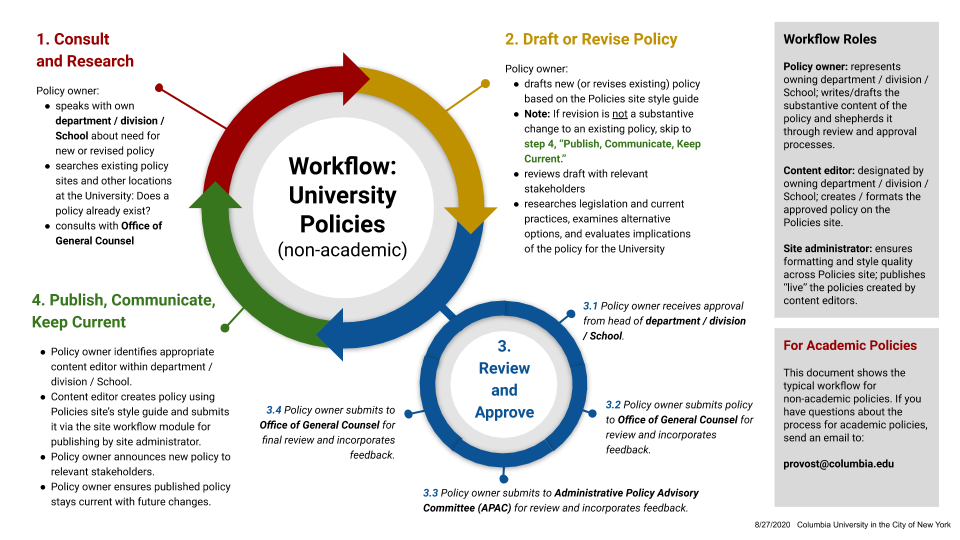This document is an incomplete version, and will invariably change over time.
This PGG reporting policy was developed during the URGE coursework. As such, this document is constantly under revision. While a majority of the policy is contingent on Columbia University resources, the hope is that the resources available will become clearer and more accessible in the future. Our policy attempts to: collate all resources and policy that our institutions have in one place for easier access; and, cover areas in which the current reporting policy does not address.
Policy For the CU / LDEO Community
Our reporting policies follow the policies put in place by Columbia University and Lamont-Doherty Earth Observatory. All students, faculty, staff, and visitors are covered within the scope of the policies set forth by the institutions. The policies are available on the websites below and will not be transcribed:
Reporting Resources
None of these resources allow for anonymous reports. However, a number of these resources are confidential. We will indicate which of these are known to be confidential reporting resources.
- Marjory D. Fisher – Associate Vice President & Title IX Coordinator, University Life
- Referral Form: Discrimination, Harassment, Gender-Based Misconduct | CU
- Marjory D. Fisher – Associate Vice President & Title IX Coordinator, University Life
- Harassment and Title IX: Information for the Lamont/Columbia Community
- Marjory D. Fisher – Associate Vice President & Title IX Coordinator, University Life
- Office of Equal Opportunity & Affirmative Action | CU
- Marjory D. Fisher – Associate Vice President & Title IX Coordinator, University Life
- Office of Sexual Respect | CU
- Marjory D. Fisher – Associate Vice President & Title IX Coordinator, University Life
- CPW-UAW Workplace Issue Form | Postdoc Union
Policy Revision
At Columbia University, the policy revision process is staunch in bureaucracy. However, it is possible to make policy changes within the institution. The workflow PDF detailing the revision process within the University is below.
At Lamont-Doherty Earth Observatory, one recommendation is contacting the current Associate Director for Diversity, Equity, and Inclusion: Vicki Ferrini | Lamont-Doherty Earth Observatory. Raising concerns to a committee or EXCOM division representative, may lead to a campus wide Town Hall meeting.
Policy FAQ:
Case officers within the Title IX and EOAA offices are not publicly listed as of February 2021.
The police are only included if the victim files a claim with the NYPD and/or Campus Safety. In the case of police involvement, the EOAA and Campus Safety offer support during the formal law enforcement process.
- “Resolutions that are not punitive or disciplinary in nature will continue to be available options under each of the Policies.” – Gender-Based Misconduct and Interim Title IX Policies and Procedures for Students | Columbia University
- “Case is reviewed by investigators in EOAA or GBM Offices. Suggested sanctions are presented to the Supervisor or Dean, who then makes executive decisions. Appeal process available.” – Lamont-Doherty Earth Observatory | Discrimination, Harassment and Gender-Based Misconduct Training (ldeo.columbia.edu)
